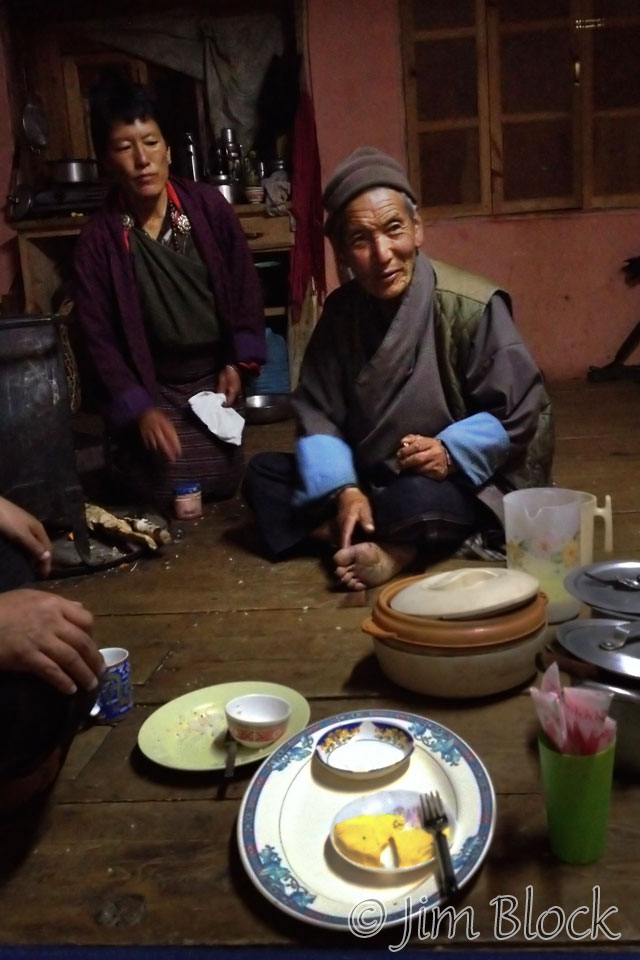
Ara is a traditional alcoholic beverage consumed in Bhutan. “Ara is made from rice, maize, millet, or wheat, and may be either fermented or distilled” according to Wikipedia. However, I believe it is normally first fermented and then distilled.
Dr. Karma’s father described the process to us, with our guide Lakey translating, as we sat on his floor eating breakfast with the family.
To paraphrase the description: “Wheat is cooked into a mush. It is then spread out on the floor on a mat for about 5 hours to cool. It is mixed with yeast and put in an airtight container for a month – longer if a stronger drink is desired. (fermentation) It is then boiled on the stove and a central pot is used to catch the condensate, which is mostly-alcohol, that evaporates earlier than the water. (distillation)”
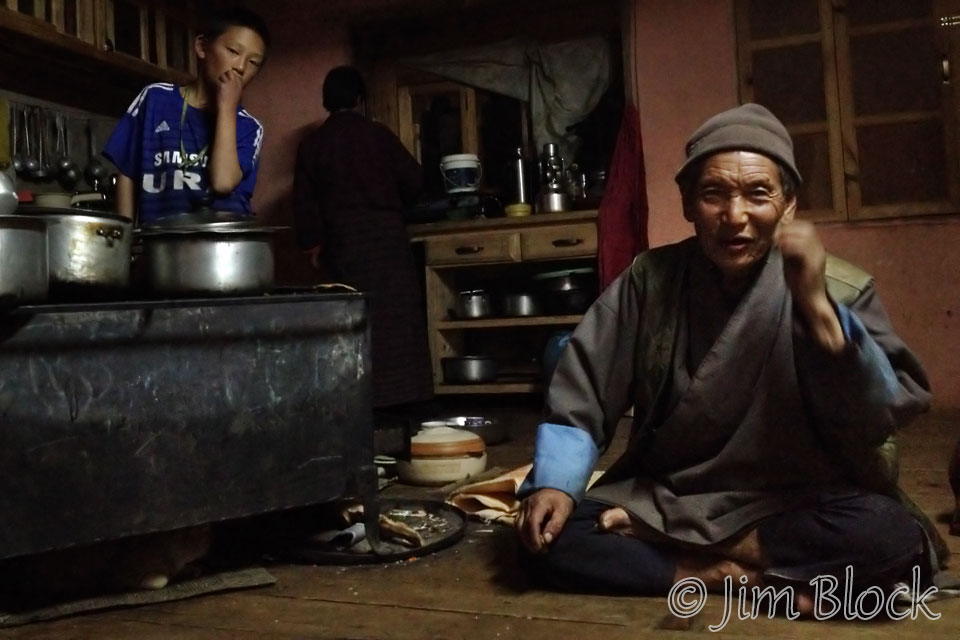
This description of the ara-making process is confirmed by the traditional instructions on the wall of the amazing private Ogyen Chorling Museum in Tang. As can be seen in the crude drawing at the right, the fermented grain is boiled and the condensate falls into a container which holds the distilled ara.
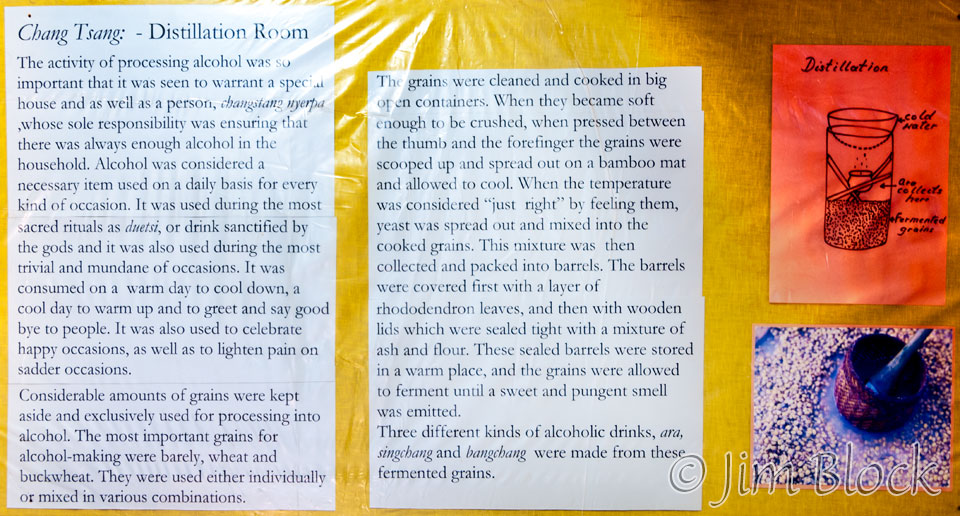
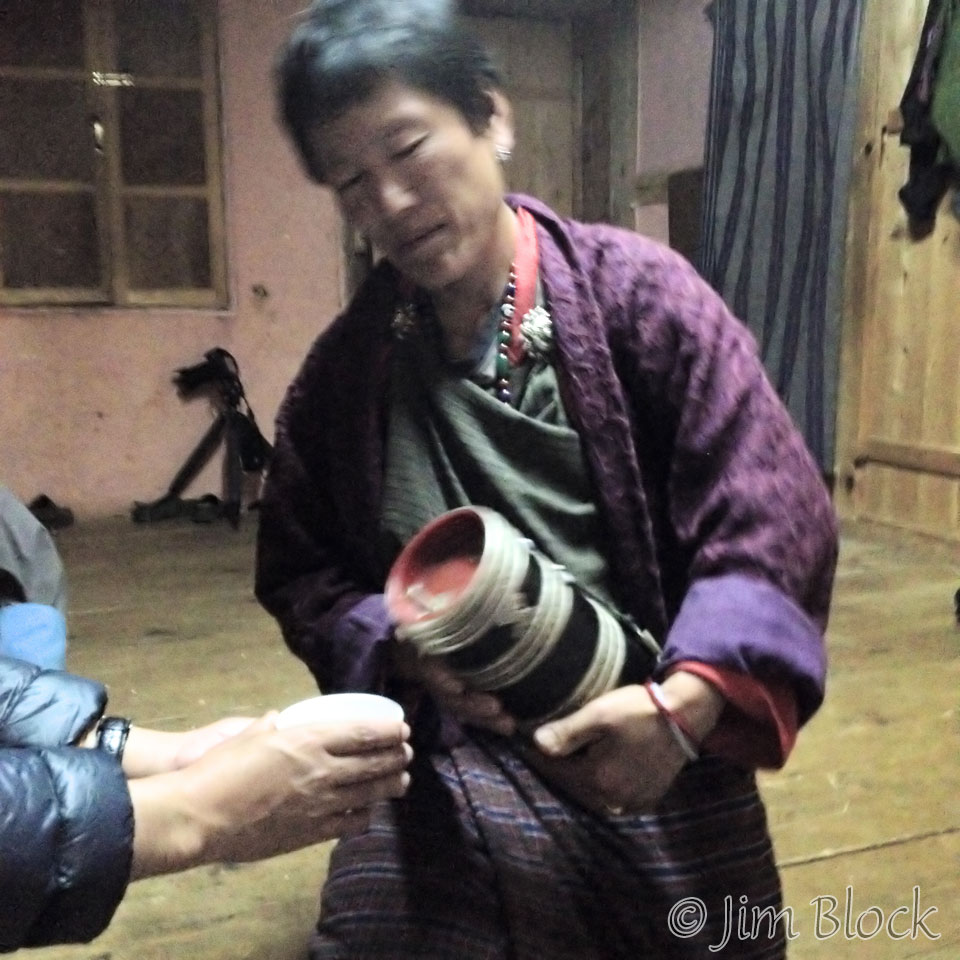
After breakfast Dr. Karma’s family toasted our departure for a 10-hour hike over the mountains to Tang with cups of ara – at 6:15 AM. This is a tradition in rural Bhutan when guests leave. The photo at the right shows Dr. Karma’s wife, Uggyen Haden, pouring ara from a traditional container the evening before. You can see my camera on a tripod in the background. The photos here in the farmhouse were taken with my iPhone, even though the room was quite dark.
The tradition of serving ara to departing guests was followed at the new River Lodge in Tang two days later. Ara is not offered to the driver, however, so Kencho was just watching.
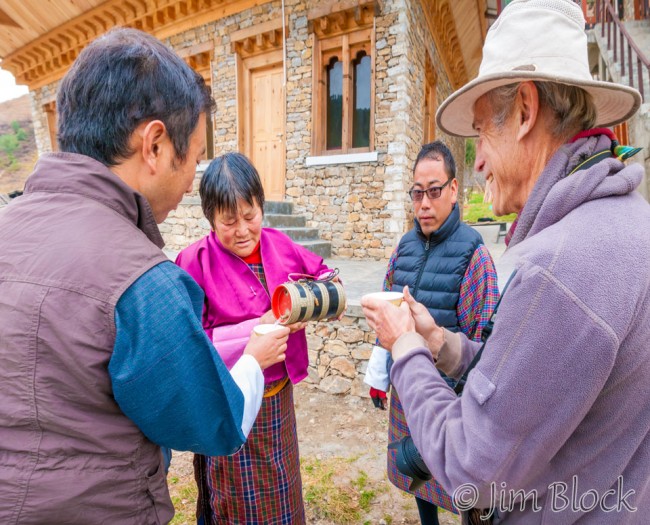
From Wikipedia, ara is only legally produced and consumed privately. Ara production is unregulated in both method and quality, and its sale is prohibited in Bhutan. Previously, private individuals sold ara through shopkeepers despite the prohibition and faced a harsh government crackdown. However, because Ara can return far more profit than other forms of maize, many Bhutanese farmers have pressed for legal reform. The Bhutanese government, meanwhile, is intent on discouraging excessive alcohol consumption.
The morning before we visited Dr. Karma’s farmhouse, we enjoyed some of Kencho’s excellent ara in his home. Here is his mother serving us from a traditional container.
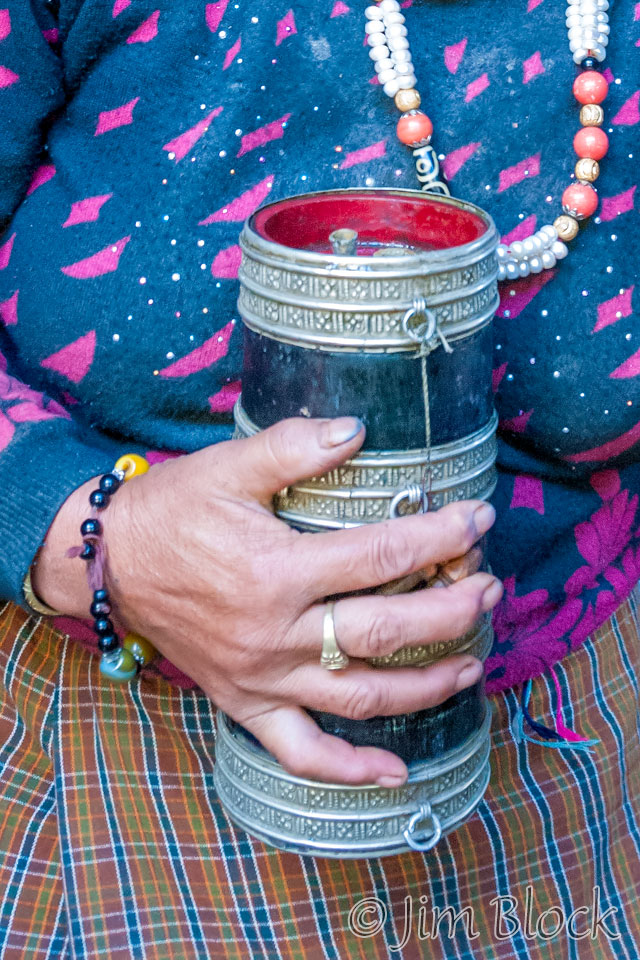
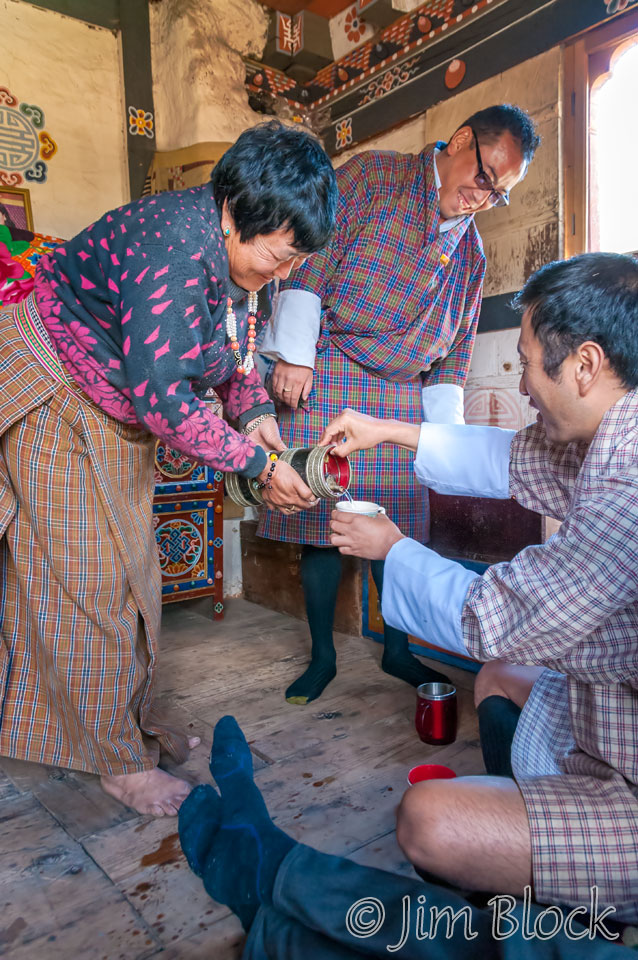
Kencho’s brought some of his ara in a plastic soda bottle which we sipped at several meals later in the trip. We learned the last night of our visit to Bhutan that not all ara is created equal when we sampled some very inferior ara at another farmhouse.
